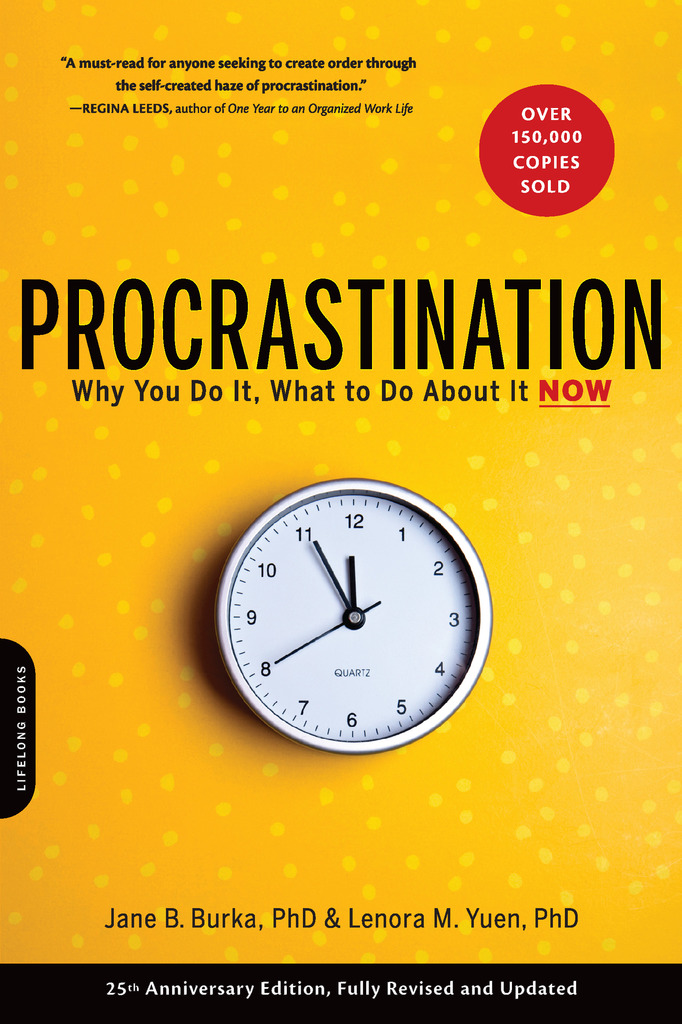 Have you ever felt that you didn’t want to begin a task until you were ready to do a really good job? Have you ever put off beginning something because you lacked confidence that you could measure up to your own expectations?
Have you ever felt that you didn’t want to begin a task until you were ready to do a really good job? Have you ever put off beginning something because you lacked confidence that you could measure up to your own expectations?
If so, then you probably know from experience that there is a strong link between perfectionism and procrastination.
If so, then you probably know from experience that there is a strong link between perfectionism and procrastination.
Procrastination is a topic we’ve been exploring at the TSM blog during the past few weeks. Before continuing this discussion, it may be helpful to recap the ground we’ve covered so far in this series.
Recap of Procrastination Series
In Part 1 of this series, I showed evidence that the longer you wait between graduation and taking your EPPP, the greater your likelihood is for failure. I drew attention to the fact that because of memory decay, those who waited an average of 4-5 years between graduation and their liscencure exam had an average failing score of 493.60.
In Part 2 of this series we looked at some of the factors that lead a person to procrastinate, in particular the feeling of being overwhelmed. I offered some specific steps you can take for beginning your EPPP practice even when you feel overwhelmed.
In today’s post we will continue this discussion by looking at the relationship between procrastination and perfectionism.
How Unrealistically High Standards Stop us From Getting Started
Jane Burka and Lenora Yuen explored the relationship between perfectionism and procrastination in their book Procrastination: Why You Do It, What to Do About It. They showed that procrastination often arises from people setting unrealistically high standards for themselves.
For example, if a person is a perfectionist about the way he or she will study for their EPPP, that person may be tempted to wait until they have the perfect schedule, or feel ready in every way for attending to it. Or perhaps a person is such a perfectionist that she feels she will not be able to live with herself if she scores anything less than 100%. These types of perfectionistic fears can lead a person to keep delaying their EPPP practice while their career and life plans go on hold.
High expectation from others can have a similar effect in causing us to delay starting what we need to do. Studies published in Cognitive Therapy and Research, Vol. 14, No 6 found that the frequency of academic procrastination was associated with reports of high parental expectations and high parental criticism. If we are susceptible to the criticism of others, or overly critical of ourselves, we often put off beginning what we need to do because of a fear of failure.
High Achievers Are Not Perfectionis
If you look at the most successful people in any given field, they are less likely to be perfectionists. Research published in the journal ‘Social Behavior and Personality‘ confirms this, as does some of the stories Malcomb Gladwell tells in his latest book, David and Goliath: Underdogs, Misfits, and the Art of Battling Giants.
In short, high achievers are generally not intractable perfectionists. Instead, they get started with what they need to do whether they feel adequate to it or not.
Are You a Perfectionists
Do any of the following statements sound familiar? If so, you could be suffering from perfectionism.
- “If I begin my EPPP practice before I’m ready, then I might be insufficiently prepared for the exam, and if I failed the exam I could never live with myself.”
- “I’m not going to begin my EPPP practice until I’m able to devote at least 5 hours a day to it.”
- “I need to be fully ready in every way before I begin studying for the EPPP.”
- “I’m an all-or-nothing person, so I’m not going to begin my EPPP study prep until I know for sure that I’ll be able to do it perfectly.”
If any of the above statements describes your thought processes, then you could be suffering from a perfectionism-induced procrastination.
If so, it’s time to stop procrastinating and begin moving towards achieving your life’s goals.
Further Reading
- Waiting Too Long to Take the EPPP Could Lessen Your Chance of Success (Procrastination Part 1)
- Don’t Delay Your EPPP Prep (Procrastination Part 2)
- Procrastination: Why You Do It, What to Do About It
